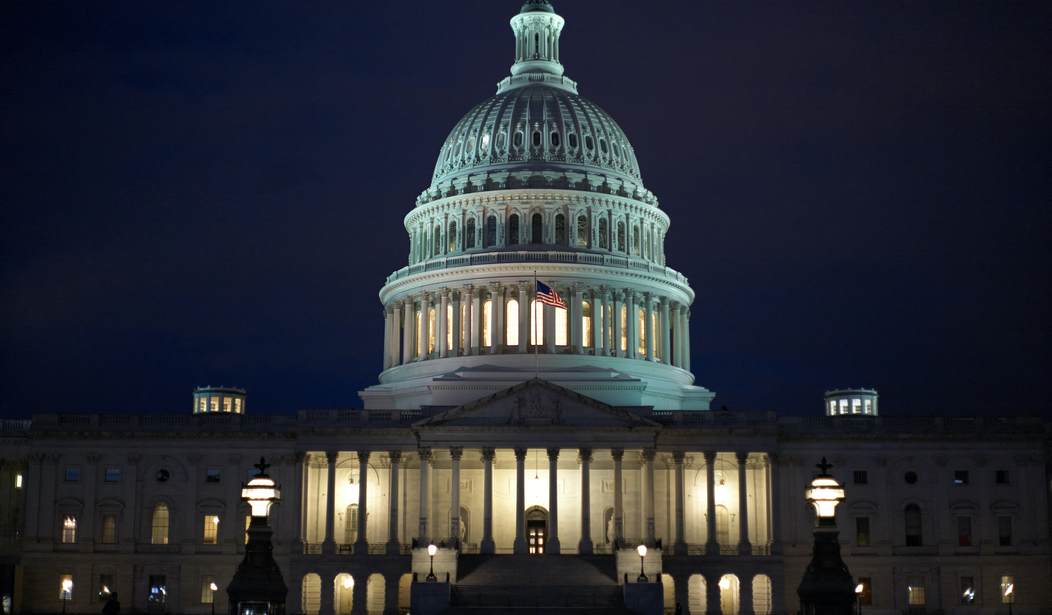Congress has been making moves to keep the government funded. After the House on Wednesday night passed a short-term funding bill, largely along party lines, it moved onto the Senate, where it passed on Thursday night by a vote of 71-19. The continuing resolution (CR) is meant to give lawmakers more time to argue over the details before they have to pass a spending bill for December 23. While much has been made about the feud between House Minority Leader Kevin McCarthy (R-CA) and Senate Minority Leader Mitch McConnell (R-KY) about supporting the bill, it's not just House Republicans in opposition. Many Senate Republicans voted against it as well.
While there was some agreement earlier this week for an omnibus framework deal, House Republicans have come out against it, looking for more clout given that they're to take the majority for the 118th Congress, now just a few weeks away. While the Senate Vice Chairman of Appropriations, Sen. Richard Shelby (R-AL) issued a statement of support with Sen. Patrick Leahy (D-VT), the chairman and Rep. Rose DeLauro (D-CT), the House Appropriations chairwoman, it's worth pointing out that Shelby and Leahy are retiring.
Such a mention and cause for pause and concern was mentioned in Aris Folley's report for The Hill:
Twenty-two Republicans joined Democrats in passing the legislation on Thursday. However, others in the GOP have pushed against a one-week CR in favor of a stopgap bill that would kick the deadline into the new year to give the party more influence on how the government should be funded for fiscal 2023, which began in October.
Sen. Mike Braun (R-Ind.), a member of the Senate Appropriations Committee who voted against the stopgap bill, told The Hill ahead of the vote that he would have only backed the measure if it moved the deadline into next year.
“I think most Republicans are gonna listen to the Republicans that just gave us the House back, and why would you do that when we’re gonna have more input into it, even though it might be a process, a little bit of turmoil, why would you do that now?” Braun said.
...
Sen. Rand Paul (R-Ky.) confirmed to reporters around noon that he placed a hold on the CR, saying: “I think it’s a good idea that we move it into the spring with the new Congress.”
Other Senate Republicans opposing the bill also pressed for partisan amendments ahead of the vote.
...
Opponents of passing an omnibus this year also point to the coming retirements of Sens. Patrick Leahy (D-Vt.) and Richard Shelby (R-Ala.), the chairman and vice-chairman of the appropriations panel, while arguing Congress needs to have a fresh start on appropriations beginning the new year.
“We should not move a short-term CR,” House Minority Leader Kevin McCarthy (R-Calif.) said hours before the House vote on Wednesday. “We should move one further into the new year. Allow the American people what they said a month ago — to change Washington as we know it today. We can’t afford to continue to spend the way the Democrats have. The future generation cannot afford it as well.”
Recommended
One such voice of opposition mentioned is Sen. Mike Braun (R-IN), who supported Sen. Rick Scott (R-FL) in opposing McConnell for his leadership role, though McConnell won handily last month. He voted against the bill and only would have voted for it if moved the deadline to next year.
As a result of the CR, funding levels are frozen before December 23, so as to avoid a government shutdown. A next major part of the conversation is whether members will have to work through the Christmas or even New Year holidays.
Kristina Karisch also highlighted members' thoughts on funding the government in "The Hill's Morning Report" for Friday. Rep. DeLauro's comments in Roll Call for instance are highlighted in acknowledging that while she expects that the spending bill can pass by Christmas, she "can't account for crazy things that come up."
The CR now heads to President Joe Biden's desk to sign.
























Join the conversation as a VIP Member